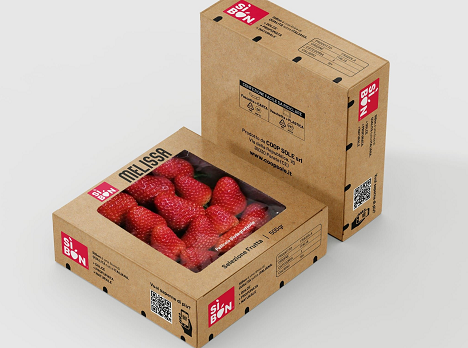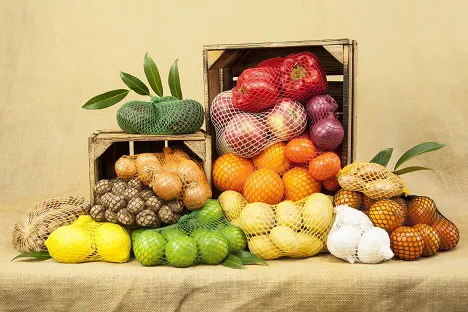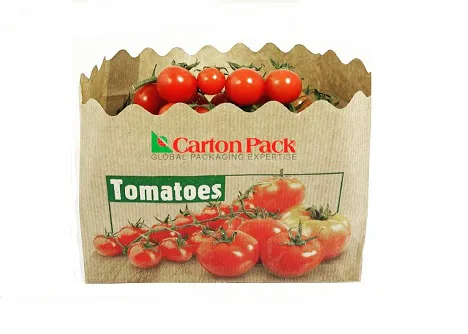With a commercial career path in various sectors and industries including horticulture, Séverine Didier, with her extensive experience and strong customer orientation, is now the sales agent at the head of Alcé, created in July 2020 and located in the Grand-Est region of France. “I went into the fruit and vegetable sector exactly when the discussions about the Agec law were starting, so I was interested right away in finding alternatives and reducing plastic packaging. I looked for companies I could accompany in their transition. I serve as an intermediary between the factories, which do not automatically have a sales power in France, and the marketers and packers.”
 Supply difficulties and soaring prices
Supply difficulties and soaring prices
“The biggest challenge for the coming weeks will be to organize the sector in a short amount of time in order to meet the demand and adapt the production capacity. We will have to manage the flow of raw materials and the soaring costs. That is already the case for paper, and cardboard is going in the same direction. For the cellulose net, for example, we can already feel that, in terms of production capacity, France will be very greedy, and French manufacturers may not be powerful enough to meet the demand. We already see now that the delays are getting longer.”
Moreover, the factories that could invest to increase their production capacity must contend with the shortage of components and spare parts from machine manufacturers, a situation that has repercussions on the entire supply chain.

Design innovations only
“I think there will certainly be innovations in terms of design in the coming months, but not when it comes to materials, which remain very classic in this respect: net, paper, cardboard, cellulose net. With the Agec law, we are very limited. The difficulty for manufacturers is to interpret the environmental code in order to develop materials that are authorized.”
This is a real headache for the sector, which is faced with dead ends, especially for the wet products. “We must find a material that is authorized, resists humidity, and does not have an impact on the shelf-life or taste quality of the product.”
Always in the famous triptych of paper, cardboard, and cellulose, new products are being developed. “One of the companies I represent and help establish on the French market has a range of paper cases and small kraft baskets that have already been used for the Muscat grapes. It is a complement to the cardboard tray but with a lower CO2 impact. For other clients, we will also offer cellulose nets that can be stapled and brand new molded cellulose trays.”

“A net for asparagus could be a feasible solution. There are also machines being developed for tray systems with nets and wooden trays for citrus fruit to replace the flowpack.”
For more information:
Séverine Didier
SASU Alcé
Mobile: +33 6 72 15 06 95
[email protected]
